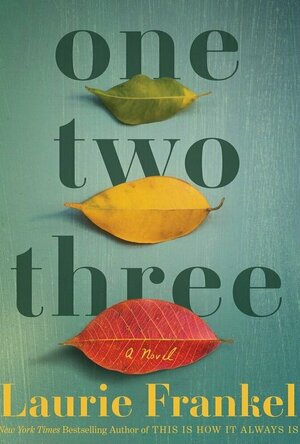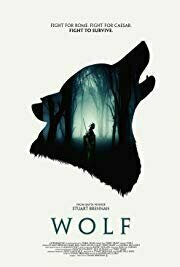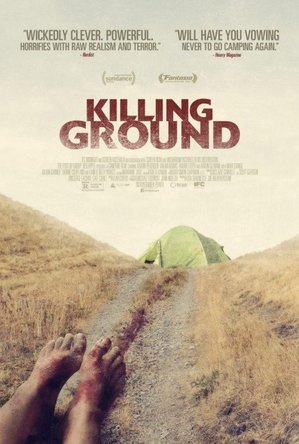Kristy H (1252 KP) rated One Two Three in Books
Jun 10, 2021
This is such an original book from the author of THIS IS HOW IT ALWAYS IS. It sneaks up on you with its quiet and touching story. Frankel weaves an emotional tale that makes you think. It's utterly fascinating, this devastated town and its broken people. So many of its citizens are sick or have lost someone they love. Yet there is a lot of hope in Bourne, especially as the story is told through young Mab, Monday, and Mirabel's eyes. They've only known their mom's sadness and bitterness, never having met their father, yet each has their own (often quirky) way of looking at life.
Frankel alternates viewpoints from each triplet, naming her chapters One (Mab), Two (Monday), and Three (Mirabel) and repeating from there. It takes a moment to get into the groove of each triplets' voice, but once you do, it's easy to get attached to them. Mab feels the weight of the world on her shoulders, sweet Monday takes everything literally, and Mirabel must remain cheerful, despite all her medical issues. Their mom holds a variety of jobs, including town therapist and working at the local bar, and maintains a decades long lawsuit and grievance. It's hard to know what the triplets' life might be like without Nora's anger and bitterness.
Still, ONE TWO THREE highlights the power of sisterhood and family. You'd think a book about a broken town would be depressing and a slugfest, but it's anything but. In many ways, I found this to be almost a mystery, as the sisters work together to figure out about the newcomers in their town and how they relate to the years of devastation wrecked upon Bourne. The result is utterly compelling, with years of intertwined secrets making for a fascinating read.
Still, at the core, this is a story about teenage girls and how they relate to the world. It's sweet, heartbreaking, and extremely well-written. There are a few points where I wish the plot sped up a bit, but overall, this is a touching and lovely story about a family and their small town.
I received a copy of this book from Henry Holt & Company and Netgalley in return for an unbiased review. Look for ONE TWO THREE on 6/8/2021!
Kristy H (1252 KP) rated The Soulmate Equation in Books
May 27, 2021
"Her life, which essentially existed in a four-block radius, was exceedingly manageable as it was."
Oh this book was so good!! I love Christina Lauren's books, and I was already intrigued by the idea of a DNA matchmaking book. Well, THE SOULMATE EQUATION did not disappoint! It's sweet and funny and interesting--I loved it!
SOULMATE has wonderful banter--that patented CLo banter--between River and Jess, but also Jess and Fizzy. Jess is a statistician and Fizzy a romance writer and they spend many of their days in a coffee shop, "working." Their friendship is next level good and freaking hilarious. Honestly, it's one of the best parts of the book. So is Jess' relationship with her grandparents, who basically raised her after her mom, who struggled with addiction, left. And then there's Juno, the cute precocious kid, who shows up asking funny questions and making you chuckle. The cast of characters is top notch, for sure. I loved how well Jess' family was woven into the story.
As for River and Jess, their chemistry is superb. They start off on the wrong foot, with River coming across as a jerk, but it's not anything too terrible, which is good, because I can't handle the "hate to love" scenarios when the "hate" seems impossible for anyone to actually overcome. Instead, River is a nuanced character with his own backstory and personality. He's consumed by the science of relationships but too busy being a genius doctor workaholic to have one. And sweet Jess, you can't help but root for her: the tired mom who lacks the energy to even try to date anymore. There's lots of science and numbers, but nothing crazy for us non-mathematicians, and honestly, the genetics aspect is pretty fascinating. (Is this really possible, world?) I saw a bit of the big twist plot point coming, but it in no way diminished my enjoyment of the story.
Overall, this was a great read. Funny, witty, and heartfelt. Great couple with awesome chemistry. Wonderful cast of characters (Fizzy needs her own book!). The entire book made me smile--definitely recommend! 4.5 stars.
Gareth von Kallenbach (980 KP) rated Jungle Cruise (2021) in Movies
Jul 28, 2021
Since attractions ranging from “Pirates of the Caribbean”, “The Haunted Mansion” and “The Tower of Terror” have made their way to screens along with others over the years; it was not much of a shock to hear that The Jungle Cruise was next in line to make the leap to the big screen. Despite several release date changes and then a lengthy delay due to Covid; the film has finally arrived backed by a star-studded premiere at Disneyland.
When Doctor Lilly Houghton (Emily Blunt) with the help of her high-maintenance brother MacGregor (Jack Whitehall) desire to find a mythical item and gain entry into a prestigious organization; they are hampered by the sexist views of early 1900 England and forced to steal an artifact and race to the Amazon.
With a dangerous foreigner; Prince Joachim Jesse Plemons and his goons in hot pursuit, Lilly and her brother find themselves in the company of a boat captain named Frank (Dwayne Johnson); who in dire need of money uses all sorts of methods to gain a charter and take Lilly and her brother into a dangerous area.
Along the way, all manner of humor, action, and dangers arise as everything from hostile natives, animals, rapids, and of course, The Prince stands in their way. If this was not bad enough; there is also a matter of a curse that must be factored in which presents an even bigger danger than before.
In a race against time, Frank and Lilly must learn to trust and work with one another and decipher the clues to save the day and keep the forces of evil from winning.
The film takes a bit of time to get going as while there is some action and great scenery and sets; early on it does seem to be unsure of what type of film it wants to be and what type of story it wants to tell.
Is it a madcap adventure with a dash of romance? Is it an FX-laden action spoof? Perhaps it is an over-the-top action film that recalls the fabled cinematic adventures of old?
In reality, the film is a combination of all of the above. I had flashes of “The African Queen”, “Romancing the Stone”, “Raiders of the Lost Ark”, “Pirates of The Caribbean”, and “The Mummy” during the film.
While the MacGuffin element of the film may be a bit confusing for some with more questions than answers; Blunt and Johnson work very well with one another and Whitehall provides a wider element to his character making him more than the comic relief in the film.
The FX are very enjoyable and the film mixes the humor with the action well including some of the best jokes from the attraction.
While it may at first glance be considered just a routine adventure film; the movie blends a strong and enjoyable cast with a fun adventure that recalls the thrilling cinematic tales of old but does so with a fresh and modern twist.
4 stars out of 5
Jesters_folly (230 KP) rated Wolf (2019) in Movies
Sep 19, 2019
So basically it's Roman’s vs werewolves in the woods, a premise with so much potential. However it fails in oh so many ways. I feel a bit bad for this review because I did enjoy the film, admittedly I seemed to be the only one as everyone else left about half way through (ok there were only two other people there but they did leave) but as a film it was quite terrible. First off we have the legionnaires, the group have only been together for a few weeks and don't trust each other, and they consist of:
Shouting guy who has just been sent from Rome who can't seem to decide if he's channelling Nick Frost or Brian Blessed.
Not so shouting guy who is friends with shouting guy and likes to drink
Captain who doesn't seem very effective
Old guy who shouldn't be there, doesn’t get on with the captain
Tall blonde guy who is always on about his wife who about to have a baby
Germanic female scout that no one trusts
Ex slave woman who looks like she should be a witch (she’s not) who is friends with the captain
Black woman who has a brother
And two other guys I can't really remember
So, the film gets points for having a culturally mixed squad which is historically correct but they don’t act as a unit. They are always talking, even when hunting the creatures they never shut up. One of them say “We are Roman we do the hunting.” But they don't seem to know to be quite.
It does strike me that the film is trying to be (Or seem) historically accurate, there are mentions of tactical formations that can be used, everyone uses the names of an appropriate god and there is mention of what certain weapons are made of but all of this just adds to the feeling that the film has been made by a group of Roman reenactor enthusiasts.
I had a friend who said that ‘Cloverfield’ was one of the worst films ever because you never see the monster, we pointed out that you do but acknowledge that 'Cloverfield’ keeps the monster hidden to make it more mysterious and scary. Wolf does this as well, for most of the film all you see of the monsters are pink streaks that seem quite reminiscent of naked people and when you finally see the creatures they look like they could be extras in classic doctor who. The effects in general are a bit rubbish to the point of one the cast walking around with what looks like rice pudding or custard in his beard for ten minutes.
The camera work is sometimes shaky, shots of the sky blind you and there are times when it looks like the actors don't know how to hold a sword.
And the film doesn't end, there's a revelation, the survivors say they will continue the mission then the credits roll. There could be a sequel but if there is it will be because the cast want it and not on reviews (although I think I did enjoy it a bit).
Darren (1599 KP) rated Killing Ground (2016) in Movies
Oct 14, 2019
We know something happened to the family in the camp next door and when Ian and Samantha find their baby wandering around the area. Soon they will be fighting for their lives against the criminal psychopaths that enjoy hunting.
Thoughts on Killing Ground
Characters – Ian is a doctor who along with his girlfriend goes on the camping trip, he knows how to survive any injuries which makes him the one that could help survive the attack because o his logical decision making process. Samantha is the girlfriend that is using the trip for a big moment only to find herself needing to fight to survive. Scotty is the one of the two which seems to be the mastermind, well leader of the two who knows how to control the situation and Tood. Tood is the loose cannon, who comes off simple minded at times and other times he comes off like the psychopath he is meant to be.
Performances – The performances in this film do come off real, we believe the couple Ian Meadows & Harriet Dyer with each decision they must make, we also get scared of both the Aaron’s who gives us uneasy performances through the whole film.
Story – The story here follows three lines to start with, we have the couple heading of to their romantic camping trip, the family on their camping trip, that we know something happens to and the two men who will be committing the crime. To start with this felt annoying, I won’t lie, but soon this just builds the tension through the film as we just want to know what happens, with each twist that connection the stories becoming unsettling. We see the aftermath of what has happened over just putting us through the events, which only continues to make everything extra disturbing. This is a type of story we have seen before, though the fresh approach to this only makes this more interesting to watch even if you want to look away.
Horror – This is easily one of the most disturbing horror films you will see, when you stop to think about anything that happens, what you end up feeling is just uneasy because of what happens off camera, with the tension only making this harder to get through.
Settings – The film takes place in a remote camping ground which gives us the feeling of isolation, with have no phone signal and the humans might not be the only danger here, this is a perfect use of setting.
Special Effects – The effects are used to make each moment look more horrific, they are subtle and effective.
Scene of the Movie – When the couple plan to leave, we have a wonderful shot of Samantha walking away with somebody desperately needing help behind her.
That Moment That Annoyed Me – I didn’t like the opening moments of the three stories, it does work once we are get going.
Final Thoughts – This is one of the most disturbing non-graphic films I have seen, being left to imagine just what happens is even worse than watching it.
Overall: Unsettling and disturbing.

Nutrition Facts for iPad
Health & Fitness and Medical
App
Best Selling Nutrition App for iPad - Featured by Apple as New & Noteworthy. Nutrition is key to...

Food Diary:Daily Bits
Health & Fitness and Food & Drink
App
The easiest way to track your food. ABOUT THE APP: Keeping track of what you eat has been shown to...

iFood Diary for iPad
Health & Fitness and Lifestyle
App
*** Best Selling iFoodDiary now available for iPad - Featured by Apple as New & Noteworthy. ***...

200 Fairy Tales for Kids - The Most Beautiful Stories for Children
Lifestyle
App
——————————————— 200 Fairy Tales for Kids...

Get Resilient! Resilienz-Training mit Hypnose
Health & Fitness and Medical
App
"Get Resilient! Building Resilience by Hypnosis • Develop greater resilience to resist stress and...




